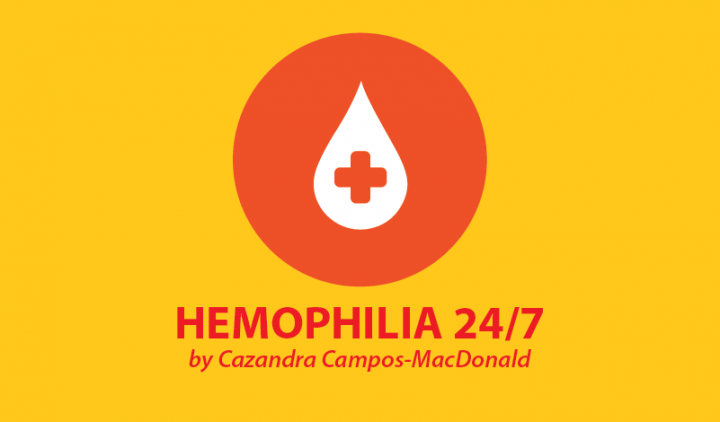How I React When Others Are Concerned About My Son’s Health
Written by |

It is hard for some of the people in my community to understand why my son Caeleb struggles when he walks. Many see him as a normal 14-year-old boy who towers over me and is as goofy as the next kid.
But they didn’t see him when he needed a wheelchair in the second grade because his right knee and ankle repeatedly bled for what seemed like an eternity. It took an entire year for his leg to heal enough to walk without a wheelchair. That was a very long year.
As he grows older, his pain has become more problematic. For the first time since second grade, he has visible, outward signs of the damage he has endured from his bleeding disorder. He gets where he needs to go using a cane, but it takes him longer.
Some members of our community are very concerned about him, and I often catch people’s faces as they watch Caeleb enter a room. They constantly ask how his knee is doing, and it is hard for me to give a quick answer. I know my friends want to know that he is OK, and that one day everything will be better. I wish it were that simple.
Maneuvering the feelings of sympathy that I sometimes encounter is not easy. People often are unsure about what to say when they know my son is struggling. They acknowledge that he is having problems, but their uneasiness keeps them from trying to understand what it must be like as the mother of a son with physical challenges. The bottom line is that they do not have personal experience with such an issue, and they want to know what to say.
The people I am referring to are uncomfortable. I used to be one of them. But once you have been a parent to a child with a severe illness, your worldview changes. You are now part of a club that understands each other.
When a mom of a sick child speaks to me, she doesn’t need to understand anything about hemophilia, nor do I need to understand her child’s illness. I am automatically empathetic. I put myself in her shoes to understand her struggles. Unfortunately, I have been where she is, even if the circumstances are a little different.
The people around me want nothing more than for everything to be OK. By asking me about Caeleb, they may be taking a huge step into the unknown. It is important to be patient and appreciative, and to give information.
Helping others understand a child’s struggles alleviates the anxiety about asking. Welcome others into your world as best as you can. You may find that these folks are some of your best advocates.
***
Note: Hemophilia News Today is strictly a news and information website about the disease. It does not provide medical advice, diagnosis, or treatment. This content is not intended to be a substitute for professional medical advice, diagnosis, or treatment. Always seek the advice of your physician or another qualified health provider with any questions you may have regarding a medical condition. Never disregard professional medical advice or delay in seeking it because of something you have read on this website. The opinions expressed in this column are not those of Hemophilia News Today or its parent company, Bionews Services, and are intended to spark discussion about issues pertaining to hemophilia.



Leave a comment
Fill in the required fields to post. Your email address will not be published.